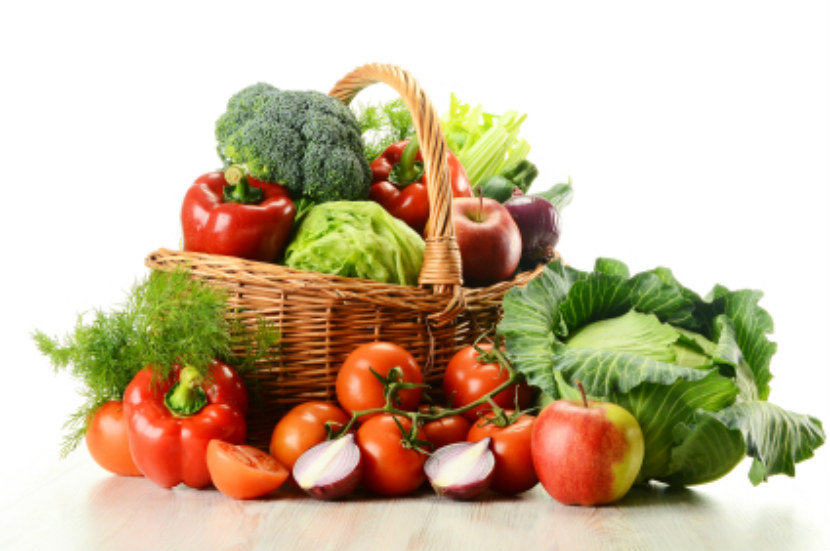
Summer is a great time for enjoying plenty of fresh fruit and vegetables, but it’s important to keep food safety in mind. Remember to buy quality produce, store it properly and wash it well.
Look for quality
Buying only quality produce is a first step you can take to help make sure fresh fruit and vegetables are safe to eat. Avoid buying or eating fruit and vegetables that are bruised, moldy or damaged in any way. Harmful microorganisms can get into damaged fruit and vegetables and become difficult to remove. That can lead to foodborne illness, often called food poisoning.
Store produce properly
Make a point of storing fresh fruit and vegetables properly to keep them fresh and safe to eat. For most vegetables and fruit, washing produce before you store it can make it spoil faster. Rinse fruit and vegetables (except for leafy greens) only when you are ready to use them.
Leafy greens will stay fresh longer if they are rinsed, wrapped in paper towel and then placed in a container or sealed plastic bag after purchase.
Some vegetables and fruit need to be stored in the refrigerator, others need to ripen before being placed in the refrigerator, and others are best stored at room temperature. If you don’t think that you’ll be able to eat your produce before it spoils, try freezing.
A general rule is to refrigerate most fresh fruit and vegetables except for:
-
Apricots, avocados, kiwifruit, mangoes, melons, nectarines, papaya, peaches, pears, plums, tomatoes. Keep at room temperature until ripe, then refrigerate.
-
Bananas, garlic, onions (except green onions), mature potatoes, pumpkins, rutabagas, sweet potatoes, winter squash. Keep at room temperature, best not in the refrigerator.
Dense raw vegetable such as potatoes and onions are well suited to being stored in cold cellars or cool room temperatures.
Be sure to store fresh fruit and vegetables in a refrigerator or cooler at or below 4°C (40°F) within two hours of peeling or cutting. Always use clean containers to store washed or prepared vegetables and fruit. And remember to keep fresh produce away from any raw meat, poultry or seafood when preparing or storing it. Throw out any fruit or vegetables that are spoiled or that are left out at room temperature for more than two hours after they have been peeled or cut.
Wash produce well
The final step is to rinse fresh fruit and vegetables well under safe running water before cutting, preparing or eating them. Water is best for cleaning fresh produce. There’s no need to use soap, detergents or other washing solutions. Just rub or scrub the produce gently to remove any dirt.
Not planning to eat the peel? You should still wash fruit and vegetables before peeling or cutting into them. This will prevent anything on the surface from getting on the knife and then contaminating the insides. Throw away the outer leaves of leafy vegetables, such as lettuce or cabbage, before washing. Use a soft clean produce brush to scrub fruit and vegetables that have firm surfaces such as oranges, melons, carrots and potatoes. Avoid using sponges that are difficult to keep clean and dry to avoid spreading bacteria around.
Always wash your hands with hot water and soap (for at least 20 seconds) before and after handling fresh produce. Also use hot water and soap to wash countertops, cutting boards, utensils and dishes that come into contact with fresh produce. Then sanitize these with a mild bleach solution that you can make by mixing 5 mL (1 tsp.) of bleach with 750 mL (3 cups) of water.
You may also be wondering …
Is organic food safer than other foods? Making sure food is safe to eat starts at the farm, whether it’s organic or not. In terms of food safety, organically grown produce, such as salad greens, have been shown to be as food safe as regular produce. The same food safety rules apply to organic and non-organic produce - it’s important to select, store and wash fresh fruit and vegetables properly. The decision to buy organic is really a matter of personal preference.
For more information:
Play it safe this summer
Understanding foodborne illness
Safe food storage
Last Update – July 13, 2017